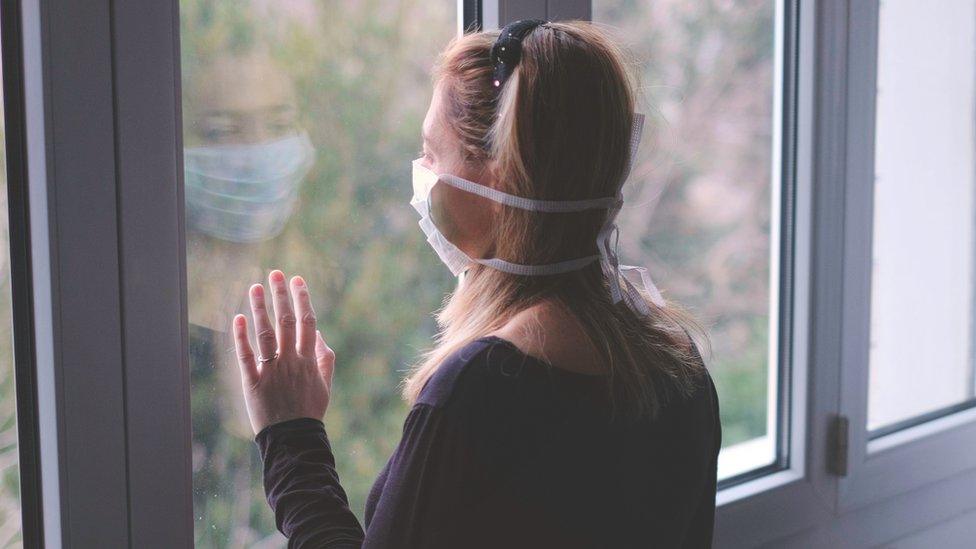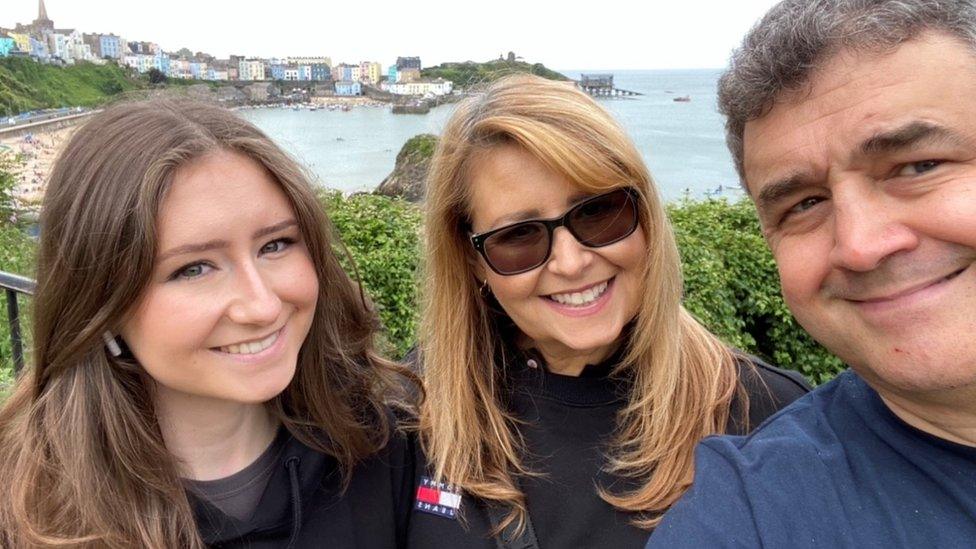Covid: No evidence shielding helped - Swansea uni study
- Published

The study says further research is needed to fully evaluate the success of shielding
There is no evidence that shielding benefited vulnerable people during the Covid pandemic, according to a study.
Swansea University compared 117,000 people shielding in Wales with the rest of the population of three million.
The study found deaths and healthcare usage were higher among shielding people than the general population.
The Welsh government said shielding was introduced on medical and scientific advice and it will continue to review evidence from the pandemic.
The study also found the Covid rate was higher among those shielding - 5.9% compared to 5.7%.
The researchers said the data raised questions about whether the policy worked.
They concluded that a "lack of clear impact on infection rates raises questions about the success of shielding, and indicates that further research is required to fully evaluate this national policy intervention".
However, they did say those shielding were tested more as they used healthcare more often.
The majority of people who shielded had a severe respiratory condition, were having immunosuppressive therapy or had cancer.
Speaking to BBC Radio Wales, Prof Helen Snooks, who led the research, said: "If shielding was going to be effective in reducing deaths and serious illness from Covid, then it really needed to reduce the infection rate, but unfortunately we didn't find evidence of that in the study.
"We have to remember that people who were included in the shielded list were clinically vulnerable and having a lot of contact with health services so if they were for instance admitted to hospital, they'd be having a Covid test.
'It was sort of made up'
"Whereas in the general population, Covid tests were fewer - we can't find a positive test if there was no test done. There is some uncertainty around these results."
Prof Snooks also emphasised that the shielding group was "a lot sicker than the non-shielding group".
"There were more deaths and there were more hospital admissions. We are, at this point, thinking that perhaps it was impossible to shield people effectively when there was such a high level of healthcare transmission at that time," she said.
"For a particular person, it may have been the best thing to do. What we evaluated was the policy of writing to people and recommending very strongly that they stay at home. It wasn't underpinned at that time by any evidence."
"It was sort of made up at the time and implemented."
"We will continue to review evidence as we learn from the protective interventions and mitigations applied during the Covid-19 response."
A Welsh government spokesperson said: "The introduction of shielding was one of a number of public health interventions made to keep Wales safe that followed medical and scientific advice.
"We will continue to review evidence as we learn from the protective interventions and mitigations applied during the Covid-19 response."
- Published28 May 2024

- Published24 March 2022

- Published15 December 2021
